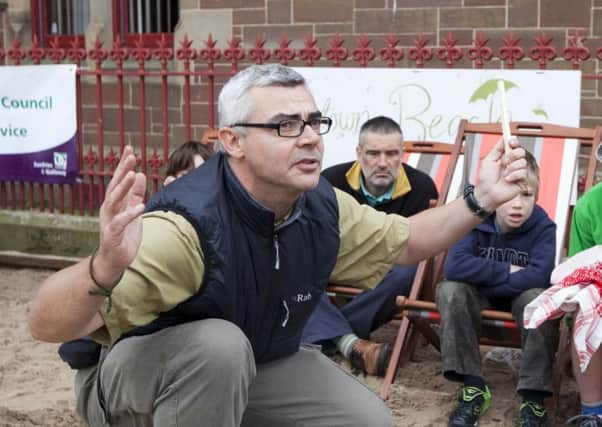Review: Wigtown Book Festival


Collected stories were the subject of this year’s Magnusson Lecture, delivered by Eleanor Rosamund Barraclough, author of Beyond the Northlands, about Viking voyages and Norse Sagas. The Icelandic sagas date from the 9th-13th centuries. Not for nothing are Icelanders called the history keepers of the north, for they left a legacy on a par with Greek tragedy and Shakespeare, said Barraclough.
Sagas, moulded by many mouths over the centuries, were read aloud during the isolated months of the winter Evening Wake. They were neither entirely fictional nor entirely accurate history, with their tales of kings, warriors, explorers, and the occasional zombie, and they remain a vibrant element of the national psyche. In Reykjavik, streets are named for sagas, arranged so pedestrians can follow the narrative: “20th-century town planners turned their capital into a walking story book.”
Advertisement
Hide AdDuring his talk On The Burning of Books, former Home Secretary Kenneth Baker pointed out that, “history defines a nation, therefore we need our books”. His was a whistle-stop tour of historically shaming moments, from the Chinese Emperor who torched the complete historic record of his enemies (along with 4,000 scholars), to Goebbels’ “Fire Speech” of May 1933, and including books burned in the UK, such as Tindale’s first English bible.
Robert Twigger gave a tutorial on micromastery, the subject of his next book. “When people heard it takes 10,000 hours to master a skill, they thought you only needed time, not talent,” he warned. Luckily talent can be nurtured and competency boils down to “isolating the Entry Trick” and breaking through the “Rub-Pat-Barrier,” named for the feat of rubbing your stomach while patting your head, which seems hard, until you crack it. “Repetition need not be boring,” said Twigger.
Louise Gray is a micromaster. Keenly alert to environmental issues, she vowed to only eat meat that she’d killed and butchered herself – but first she had to learn how. The Ethical Carnivore finds her in the woods levelling her shotgun at deer and visiting abattoirs to confront awful truths. Gray pointed out that we eat three to four times more animal protein than we need, urged us to think harder about supporting local farmers whenever possible, and will go down in Wigtown history for marinating squirrel hors d’oeuvres in her B&B’s kitchen.
One animal we don’t eat is the fox – renowned for its cunning, reviled as a pest, yet also revered as a familiar furry critter. Broadcaster Lucy Jones, author of Foxes Uncovered, made a close study of one of the last predators left in Britain, discovering that their powers of adaptability (true omnivores, they’ll eat everything from earthworms to fellow foxes), their ultra-keen senses, and yes, their intelligence, makes them practically superheroes.
How does a writer hunt for characters? Don’t ask psychologist turned novelist Shelley Day, author of The Confession of Stella Moon. “Stella came to me like a real person, and told me her story of trauma. I could see it happening and I wrote down what I saw,” she said. “As an academic I researched memory and storytelling, and how it can hold lives together.” Even so, she admitted, she sometimes had to put the novel aside when it got too upsetting – not least when one of the characters appeared at the foot of her bed to critique Day’s version of events.
Stories do hold lives together, and nowhere is that more apparent than at a book festival, where every hour brings a new raft of ideas.